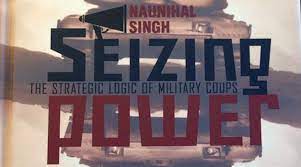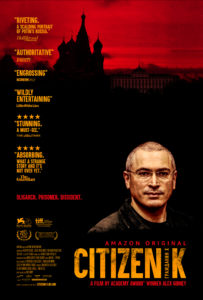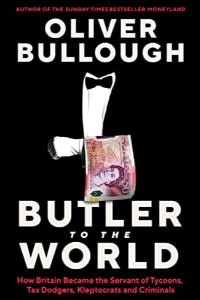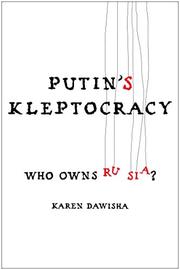A military revolt against Putin is more possible now than it was before the invasion of Ukraine, but the odds against it remain long. Wars like Putin’s can breed resentment and fear in the ranks, precisely the conditions under which we’ve seen coups in other countries, VOX reports.
“There are reasons why Putin might be increasingly concerned here,” says Naunihal Singh, one of the world’s leading scholars of military coups. His 2017 book Seizing Power uses statistical analysis, game theory, and historical case studies to try to figure out what causes coups and what makes them likely to succeed.
 Can sanctions squeeze Russia’s wealthiest citizens, to censure and compel them to pressure Russia’s President Vladimir Putin to end his war against Ukraine?
Can sanctions squeeze Russia’s wealthiest citizens, to censure and compel them to pressure Russia’s President Vladimir Putin to end his war against Ukraine?
“It’s the trillion-dollar question. Can these people restrain Putin?” analyst Oliver Bullough told Recode:
But it’s important to realize that since Putin was elected in 2000, the oligarchy in Russia doesn’t work the way it used to; its members have a lot less power and influence than they once did. These punishing sanctions have so far prompted only muted comments about Ukraine from a few oligarchs, many of whom are based outside of Russia.
“If we want to stop the war, then all the banking, all the bank accounts of Russia must be frozen,” Mikhail Khodorkovsky, former CEO of Russian oil giant Yukos and an outspoken critic of the Kremlin, told CNN, adding that “there must be no exceptions.”
 “The blow to the financial system has been enormous. But at the moment, only 70% of the cash flows have been blocked,” Khodorkovsky told CNN. He said that to halt the invasion, the West needed to block the remaining 30% of cash flows to Russia, including increasing the number of frozen Russian bank accounts and blocking Putin’s bankers.
“The blow to the financial system has been enormous. But at the moment, only 70% of the cash flows have been blocked,” Khodorkovsky told CNN. He said that to halt the invasion, the West needed to block the remaining 30% of cash flows to Russia, including increasing the number of frozen Russian bank accounts and blocking Putin’s bankers.
“I’ve never advocated sanctions against Russia as a whole, but the financial flows need to stop,” Khodorkovsky said.
London Mayor Sadiq Khan today called for Russian oligarchs’ London properties to be used to house refugees from Ukraine. Describing the houses as “gold bricks used to launder money,” he said it would be a form of “poetic justice”.
He told Times Radio: “I, for some time, with others, have been complaining about those Russian oligarchs close to (Vladimir) Putin, using our city to launder money by buying homes or businesses. And what’s doubly heart-breaking about the homes they buy is they’re left empty for years. They’re not homes, they’re gold bricks used to launder money.”
 For those arriving from Vladimir Putin’s Russia, London offered safety, security and secrecy. Britain has accommodating laws on tax, libel and property, enforced by an efficient, if expensive, court system—which is, moreover, accommodating in the matter of injunctions, The Economist adds. Extradition to Russia, with its corrupt judiciary, is a no-no in the eyes of English judges. On top of this, the private schools are good and so is the shopping. London is an “everything haven”, in the description of Oliver Bullough, author of “Butler to the World: How Britain Became the Servant of Tycoons, Tax Dodgers, Kleptocrats and Criminals”.
For those arriving from Vladimir Putin’s Russia, London offered safety, security and secrecy. Britain has accommodating laws on tax, libel and property, enforced by an efficient, if expensive, court system—which is, moreover, accommodating in the matter of injunctions, The Economist adds. Extradition to Russia, with its corrupt judiciary, is a no-no in the eyes of English judges. On top of this, the private schools are good and so is the shopping. London is an “everything haven”, in the description of Oliver Bullough, author of “Butler to the World: How Britain Became the Servant of Tycoons, Tax Dodgers, Kleptocrats and Criminals”.
But London’s initial turn against kleptocracy may be less than the sum of its parts, warns Casey Michel, author of American Kleptocracy and an Adjunct Fellow at the Hudson Institute’s Kleptocracy Initiative.
A report from the Center for American Progress, the think tank considered closest to the White House, specifically called for the US to push British partners to tackle Russian oligarchs burrowing the finances in “Londongrad”. Days later, The Times reported that American officials had expressed “dismay and frustration” with London’s lethargic approach to the problem, he writes for Open Democracy. As such, it is incumbent on the UK’s allies – especially those in Washington – to step up the pressure on Downing Street, on legislators, and on any and all British partners trying to slow-walk these pro-transparency reforms.
Bullough’s new book explains how London became a favored destination for dodgy dough not by chance but by design, the Economist reports. For over half a century, Britain’s business model has been to act as the butler of his title to oligarchs, gangsters and kleptocrats looking for a safe place to park their often ill-gotten gains and enjoy the high life.

“Putin has brought oligarchy in-house,” added Bullough, a journalist who writes a newsletter about oligarchy at Coda. “And now we’ve got much more of a system akin to the Tudor court of Henry VIII, with a king and then a number of aristocrats around him who own their property as long as he’s prepared to tolerate them.”
According to Andrei Soldatov, a Russia expert at the Center for European Policy Analysis think tank, Putin is punishing high-ranking officials in the FSB — the successor agency to the KGB — for the war’s early failures. Soldatov’s sources say that Putin has placed Sergei Beseda, the leader of the FSB’s foreign intelligence branch, under house arrest (as well as his deputy).
Weaponizing Greed
“And this was Putin’s plan all along,” Jonathan Pie asserts (above). “For 20 years, he’s been slowly neutralizing us as a threat — by using our own greed against us.”

In his recent essay for the National Endowment for Democracy’s International Forum – “An Offshore Cold War: Forging a Democratic Alliance to Combat Transnational Kleptocracy,” Bullough complains that while today’s tyrants “are willing and able to do anything to expand their own power,” unlike during the Cold War, “democracies are no longer facing autocracies across well-defended national borders.”
Squatters surrounded on balcony of Oleg Deripaska’s London mansion https://t.co/QKGjQrBVsR
— Democracy Digest (@demdigest) March 14, 2022







